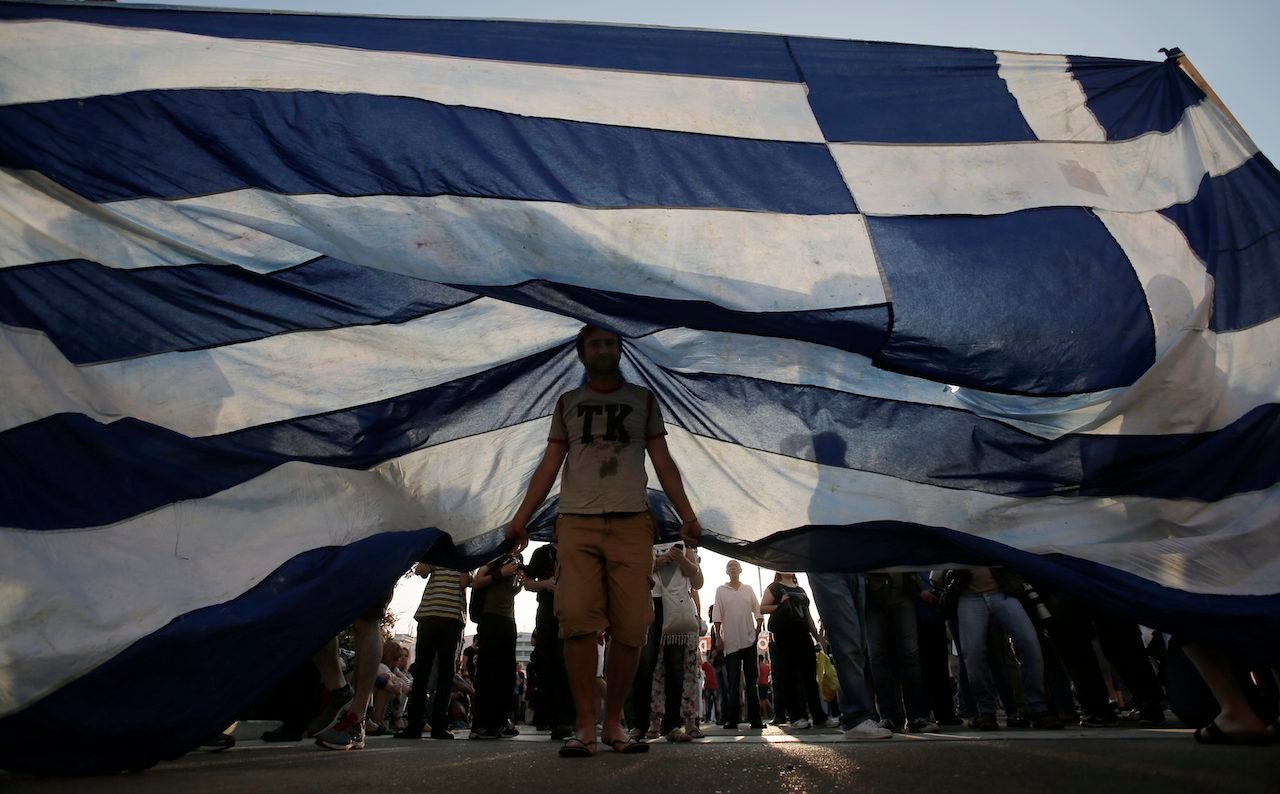SUMMARY
This is AI generated summarization, which may have errors. For context, always refer to the full article.

Greek voters’ defiant rejection of the terms of an international bailout in Sunday’s referendum capped a dramatic week for the country in its standoff with EU-IMF creditor, who are demanding tough austerity measures in exchange for further rescue funds.
Here is a day-by-day look over the past 10 days of financial and political drama in Greece.
Saturday, June 27
Prime Minister Alexis Tsipras calls a July 5 referendum on whether or not to accept the creditors’ terms in the latest round of bailout aid. “The people must decide free of any blackmail,” he tells the nation.
Eurozone finance ministers decide to let the Greek bailout program expire on June 30, effectively ending talks with Athens on more aid. Greeks start withdrawing large sums of money from banks.
Sunday, June 28
The European Central Bank says it will maintain an emergency cash lifeline to Greece but not increase its level, raising fears of a liquidity crunch.

Greek officials enact capital controls that limit ATM withdrawals by Greeks to 60 euros ($65) per day and close banks until July 7.
Pensioners without bank cards can withdraw money from banks however, and foreign tourists are not subjected to the limit.
Monday, June 29
European Commission head Jean-Claude Juncker says he feels “betrayed” by the Greek actions. Tsipras publicly doubts Juncker’s “sincerity” as relations between the two sides hit a new low.
Tuesday, June 30
Tsipras seeks a 30-billion-euro deal with the European Stability Mechanism (ESM) to cover state financing needs and restructure Greece’s crushing debt.
At midnight, Greece misses the deadline to repay 1.5 billion euros in loans to the International Monetary Fund.
Wednesday, July 1
German Finance Minister Wolfgang Schaeuble presses Athens to “clarify its position on what it wants.”
(READ: Filipinos on Greek debt crisis: ‘Slow death’)
Thursday, July 2
Greek Finance Minister Yanis Varoufakis says he will resign if voters do not back the government in the referendum. It has urged voters to reject the terms of a rescue package that has already expired but which could be the basis for future talks.
The IMF estimates that Greece needs 50 billion euros over the next three years, including 36 billion euros more from EU lenders, and debt relief to stabilize its finances.
Friday, July 3
The European Financial Stability Facility (EFSF) declares “an event of default by Greece” after the missed IMF payment. It has nonetheless “decided not to request immediate repayment of its loans nor to waive its right to action,” a statement says.
Tsipras calls for a 30 percent haircut of the Greek debt and a 20-year grace period for the rest. Total Greek debt is 323 billion euros, or nearly 180 percent of its gross domestic product (GDP).
(READ: Greece won’t leave eurozone, says Italian PM)

European Commission chief Juncker says Greece’s negotiating position with creditors would be “dramatically weakened” in the event of a “No” vote in the referendum.
Crowds gather at rival rallies in central Athens – the biggest of the referendum campaign – with Tsipras telling supporters a “No” vote would strengthen his hand in talks.
Saturday, July 4
As tensions grow on the eve of the vote, Varoufakis accuses Athens’ creditors of “terrorism” and scare-mongering, denying reports that Greek savers could lose 30 percent of their deposits to shore up the banks.
Sunday, July 5
Greeks reject creditors’ bailout terms with over 61.31 percent voting ‘No’ in the referendum, prompting eurozone nations to announce a summit for July 7.
Tsipras hails the referendum result as a “bright page in modern European history” and insists it does not mean a break with Europe.
But the head of the Eurogroup of finance ministers, Jeroen Dijsselbloem, calls the result “very regrettable for the future of Greece.”
Monday, July 6
Varoufakis announces his resignation on his blog and social media hours after the ‘No’ vote.
Following the referendum results, Germany announces that there is “no basis” for talks with Greece on a new bailout package or debt relief.
(READ: The morning after: Cheers fade as Greeks face reality)
IMF chief Christine Lagarde says the global crisis lender would assist Greece if asked.
Greece’s bailout negotiator Euclid Tsakalotos named new finance minister. – Rappler.com
Add a comment
How does this make you feel?
There are no comments yet. Add your comment to start the conversation.